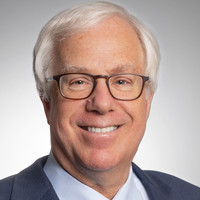President Joe Biden is fond of saying "it's never been a good bet to bet against America," and even those of us who thank the good Lord he's president have rolled our eyes at this old chestnut. It sounds like sweet, outdated wishful thinking, naive cheerleading with a twist of fuddy-duddyitis.
But given the bipartisan support for the Biden administration's moves to pour weapons into Ukraine and put the screws to Russia's financial institutions, Biden's claim has some basis. Our raw partisan divisions must have encouraged Russian President Vladimir Putin to conclude that we would roll over rather than punish him for his barbarism against Ukraine.
But to a remarkable degree, Americans agree that Russia's wholesale slaughter of Ukrainians, its naked attempt to conquer a sovereign state and its obliteration of Ukrainian cities and towns just can't be accepted — and that both morality and self-interest dictate that we help Ukraine beat Russia and remain free.
A new CBS poll shows that broad American support for sanctions on Russia's energy sectors is overwhelming. Eighty-four percent of Democrats support such sanctions, as do 76% each of independents and Republicans. Three-quarters of Americans support a United States military response if Russia attacks a NATO country — and over half of Americans believe we have not responded to Putin strongly enough.
With polls showing that Americans' collective stomach has turned witnessing images of Russian war crimes, the GOP may be moving away from being the party of Putin poodles, a position it claimed during the administration of former President Donald Trump. When Fox News' Bill O'Reilly allowed that "Putin is a killer," the Republicans' Master wouldn't have it. "There are a lot of killers," Trump replied. "We have a lot of killers. You think our country is so innocent?"
No photo captured Trump's intimate relationship with Putin better than the one of him yukking it up with Putin's top henchmen — in the Oval Office. Trump had just fired FBI Director James Comey for refusing to terminate the Bureau's investigation into links between Trump's 2016 campaign and Moscow. "I faced great pressure because of Russia," he gloated to Russia's visiting foreign minister and ambassador to the U.S. "That's taken off."
The GOP fervently embraced the Trump-Putin embrace.
On the Democratic side, the obstacles to unity have come from the party's far Left, which insists on remaining disconnected from reality. Two days after Putin invaded Ukraine, the Democratic Socialists of America blamed the invasion on the United States and NATO, a bit of idiocy that must have brought not merely smiles but snickers to the Kremlin. It called "for the U.S. to withdraw from NATO and to end the imperialist expansionism that set the stage for the conflict." NATO, of course, exists solely and precisely to deter Russian invasions like the one that has resulted in the mass annihilation of Ukrainians.
Then there was a tweet from Ben & Jerry's that has aged less well than a pint of ice cream left for a month on an Equatorial Guinean sidewalk. "We call on President Biden to deescalate tensions and work for peace rather than prepare for war," proclaimed the frozen-treat mavens in late February. "Sending thousands more US troops to Europe in response to Russia's threats against Ukraine only fans the flame of war." Many shook their heads at this childishness, but there was some speculation that it was a clever marketing move to roll out the new Ben & Jerry's flavor, "Dumb Nuts."
We're in for days that will test our new bipartisan spirit. How will the president's oft-repeated statement that we will not directly confront Russia work if Russia bombs the Polish or Romanian borders with Ukraine, where refugees are escaping and arms desperately needed by the Ukrainians are flowing in? What is the "severe price" that Russia will actually pay if it deploys chemical weapons?
All we can do is recommit ourselves to American unity and to demonstrating to Putin that he has made a bad bet by betting against us.
Jeff Robbins, a former assistant United States attorney and United States delegate to the United Nations Human Rights Council in Geneva, was chief counsel for the minority of the United States Senate Permanent Subcommittee on Investigations. An attorney specializing in the First Amendment, he is a longtime columnist for the Boston Herald, writing on politics, national security, human rights and the Mideast.
Photo credit: MabelAmber at Pixabay






View Comments